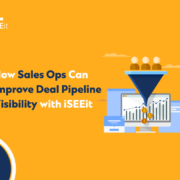How AI is Transforming B2B Sales: Should Salespeople Be Worried?

AI is advancing at lightning speed, reshaping industries as we know them. By the time you finish reading this article, there are likely 2-3 new AI tools on the market, each promising to revolutionize sales. In B2B sales, AI is already playing a crucial role, automating many tasks and driving efficiency—but does that mean salespeople will become obsolete? Let’s explore how AI is impacting the industry today and where it might take us in the future.
How AI is Changing the Game Today
From lead generation to customer service, AI is revolutionizing B2B sales. Sales teams are using AI to boost productivity, streamline processes, and focus on high-value tasks. Here’s how:
Current Uses of AI in B2B Sales
- Personalized Outreach and Email Management: AI-driven tools are helping salespeople create and manage emails. ChatGPT by OpenAI, for example, is widely used for generating personalized email content. More advanced tools like Shortwave (for Gmail) and Microsoft Copilot (for Outlook) go further, summarizing conversations, extracting key information, and helping you stay on top of prospects and customer inquiries.
- Lead Identification and Qualification: AI tools can identify potential leads within your Ideal Customer Profile (ICP), pinpoint the right personas, and provide GDPR-compliant contact data. AI also scores leads based on specific criteria, allowing sales teams to focus on high-potential prospects. Popular tools like LinkedIn Sales Navigator, Apollo.io, LeadGenius, and ZoomInfo help sales teams find and prioritize the right prospects.
- Sales Training and Coaching: AI platforms such as Gong.io, Salesforce Einstein, and Apollo.io analyze sales calls to assess both customer needs and the performance of your salespeople. These tools provide insights into how well your team is articulating value and conducting discovery, and they offer real-time feedback for improvement.
- CRM Automation: Tools like Salesforce Einstein Activity Capture automatically log emails and calls into the CRM, freeing up reps to focus on strategic tasks rather than administrative work.
- Predictive AI: AI can help forecast sales more accurately by comparing current deals with historical data on closed-won and closed-lost deals, factoring in contact points, industry trends, and activity patterns.
Potential Future Use Cases of AI in B2B Sales
There are plenty of use cases which are currently being developed, here are some that really puzzled us.
- Personalized Sales Training: AI will analyze each rep’s performance to deliver targeted feedback and tailored coaching, enabling continuous skill development and helping sales teams improve effectiveness and close rates. There the first teacher less class rooms in the UK that personalize and adapt education plans to the needs of the student.
- Virtual Sales Reps: In the near future, AI-powered virtual sales assistants could handle much of the sales process for straightforward transactions, such as license renewals or upgrades, allowing human reps to focus on more complex deals. At the time of this post we are testing interactive avatars to answer basic questions to potential clients. The results are stunning so far!
- AI-Driven AR and VR Product Demos: AI-powered AR and VR are happening in the hightech industry today to train workers on new machines operations and repairs. In the future it will enable immersive, interactive product demos that showcase complex solutions in engaging ways. These virtual experiences will be invaluable for remote sales, helping prospects understand product benefits and fostering stronger connections reducing the time and efforts for Proof of concepts.
- Real time Voice and Sentiment Analysis: AI could analyze voice tones and sentiment during sales calls, which is started the be used with different levels of success in call centers of medical hotlines and support centers to support agents with further enhancement it could enabling reps to adjust their approach based on real-time feedback about the customer’s mood or interest level, potentially uncovering the motivations and intentions based the way they articulate.
- Customer Retention and Upselling: AI will predict churn by identifying risk factors, enabling sales teams to implement proactive retention strategies. It will also suggest upsell opportunities based on customer data, empowering reps to offer relevant products that enhance long-term value and satisfaction.
- Customer Journey Orchestration: AI will map each prospect’s position in the buying journey, recommending the next best action to maintain engagement. This guidance will help sales teams navigate leads smoothly through the sales funnel, improving conversion rates and customer experience.
- AI will streamline legal paperwork: AI will be automating contract comparison, redlining, suggesting standardized clauses, and identifying risks. This support accelerates contract review, reduces errors, ensures compliance, and empowers teams to close deals confidently, efficiently and drastically reduce the No 1 reason for slipped deals.
Risks of Relying on AI in B2B Sales
With all these advances, relying on AI brings some risks that sales leaders should be aware of:
- Data Quality and Bias
AI’s accuracy depends on the data it processes. If the data is incomplete or biased, the insights generated may be faulty, leading to poor decisions. For example, LLMs still struggle to read structures like excel sheets, often terribly missing or miss interpreting clear facts and relations, which could lead to falsely qualified leads, deals or customer data resulting in biased lead scoring could favor certain customer profiles, resulting in missed opportunities or legal risks. - Over-Reliance on Automation
Automating too much can result in the loss of the personal touch that B2B sales often require. Relationships are built on trust and personalized service, and too much automation could harm customer engagement. Sales pople start consuming data and it’s interpretation and forget to fully understand and qualify themselves. - Lack of Flexibility
AI is trained on historical data and patterns, which means it may struggle to adapt to sudden changes in market conditions or unexpected events. This rigidity can slow down a company’s response to new opportunities or challenges. - Privacy and Security Concerns
AI systems need vast amounts of data, often including sensitive customer information. If not properly secured, these systems can be vulnerable to data breaches, leading to reputational damage and regulatory penalties. There are offerings masking or anonymizing data, but AI providers still lack easy approachable offerings. - Ethical Concerns
AI operates as a “black box,” and it can be difficult to explain how certain decisions—like lead prioritization—are made. This lack of transparency, combined with the risk of unintentional bias, can lead to ethical issues. - Customer Pushback
Some customers may prefer human interaction, especially in high-value or complex transactions. Over-relying on AI for communication could alienate these customers, leading to a loss of trust. I am sure you have experience a service desk bot, that just can’t understand your request.
Will AI Replace Salespeople?
The short answer is: Not really!
While AI will automate many aspects of the sales process, there is still a vital role for human salespeople, especially in complex B2B environments. Here’s why:
- Complexity and Nuance
B2B sales often involve long cycles, multiple stakeholders, and complex solution scenarios. Human salespeople excel at building relationships, understanding nuanced needs, and navigating these complexities. AI is great dealing with large scale of information but struggles with nuance. - Trust and Relationship Building
Trust is central to B2B transactions. Human interaction is key to building and maintaining trust, particularly for strategic or high-value deals that should drive top line revenue, efficiency, security or customer satisfaction goals. If you ever tried to get an issue solved with an AI driven bot, you desperately want to find and click that button “talk to a human”. - Emotional Intelligence and Adaptability
Salespeople bring empathy and emotional intelligence to the table, allowing them to react in real-time to customer concerns, adjust strategies, and build meaningful connections—skills that AI cannot easily replicate. Furthermore as soon as the interaction ends the current engines erase the session and forgot they talked to you. - Strategic Negotiation
While AI can support large data-driven insights, however strategic negotiations and handling objections require human intuition, experience, and tact. - Customization and Creative Problem-Solving
Tailoring solutions to meet specific customer needs requires creativity and industry knowledge, areas where human expertise remains unmatched.
What Should Sales Leaders Do Next?
AI is already transforming B2B sales, and its role will only grow. Sales leaders must adapt by embracing AI as an enhancement to human sales efforts, rather than a replacement. Here’s how:
- Embrace AI but stay on top of things.: Integrate AI tools into your processes to automate routine tasks and provide valuable insights, however stay in control of the accuracy of the collected data, control and correct outputs and be aware AI does make mistakes.
- Upskill Your Team: Equip your salespeople with the skills they need to leverage AI effectively and securely to avoid your customer personal data, deal infos and unmasked interaction fed into the AI engines.
- Focus on Human Value: Emphasize relationship-building, customer understanding, and exceptional service like discussing matters in old fashioned, interactive, realtime and bi-directional talk over the phone or Video call.
Conclusion
AI will continue to transform B2B sales by automating routine tasks, improving insights, and optimizing sales strategies. However, the human touch will remain critical, particularly in complex, high-stakes sales environments. Rather than replacing salespeople, AI will augment their capabilities, allowing them to focus on the most important aspects of their roles—building relationships, solving complex problems, and closing deals. The future of sales lies in combining the power of AI with the irreplaceable value of human connection.
If you are interested how iSEEit is changing the landscape of Sales qualification, contact us.













Ive read several just right stuff here Certainly price bookmarking for revisiting I wonder how a lot effort you place to create this kind of great informative website
Hello Neat post Theres an issue together with your site in internet explorer would check this IE still is the marketplace chief and a large element of other folks will leave out your magnificent writing due to this problem
Your blog is a treasure trove of valuable insights and thought-provoking commentary. Your dedication to your craft is evident in every word you write. Keep up the fantastic work!
Thank you I have just been searching for information approximately this topic for a while and yours is the best I have found out so far However what in regards to the bottom line Are you certain concerning the supply
I do trust all the ideas youve presented in your post They are really convincing and will definitely work Nonetheless the posts are too short for newbies May just you please lengthen them a bit from next time Thank you for the post
Your blog is a true hidden gem on the internet. Your thoughtful analysis and in-depth commentary set you apart from the crowd. Keep up the excellent work!